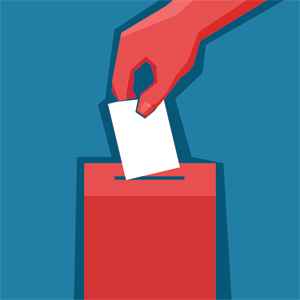ABA House calls for clearer election standards: 'Let us not return to 2000'

In a contentious election year, the ABA’s House of Delegates recalled the surprising and tense election of 2000.
“Let us not return to 2000, when we saw well-meaning judges … struggle with the process of determining voter intent because the state in that case had not enacted predetermined standards,” said John Hardin “Jack” Young, of Sandler Reiff Lamb Rosenstein & Birkenstock in Washington, D.C.
That comment came as part of debate over Resolution 103, which called on election officials to make clear standards for hand recounts of ballots, particularly in jurisdictions that use a “voter intent” standard.
Both resolutions were inspired by the Help America Vote Act of 2002, which in turn was passed in response to the election of 2000. That was the year when the U.S. Supreme Court decided Bush v. Gore, saying standardless manual recounts violate the Equal Protection Clause of the 14th Amendment.
Although HAVA requires requires states to adopt “uniform and nondiscriminatory standards” about what should be counted as a vote, supporters of Resolution 103 said many states have not done so. Young, of the Standing Committee on Election Law, moved the resolution in the House, saying democratic elections turn on the adoption of pre-election standards administered by impartial judges.
The measure passed easily.
A related resolution, Resolution 105, would have called for national standards in all electronic voting for federal office, including open-source code; redundant paper ballots; unimpeded access for observers; and penalties for tampering. Sponsor Bruce Wilder, of counsel to Pittsburgh’s Wilder Mahood McKinley & Oglesby, was unable to attend, and asked Reginald Turner of Michigan, the chair of the Rules and Calendar committee, to withdraw the resolution.
Follow along with our full coverage of the 2016 ABA Annual Meeting.



